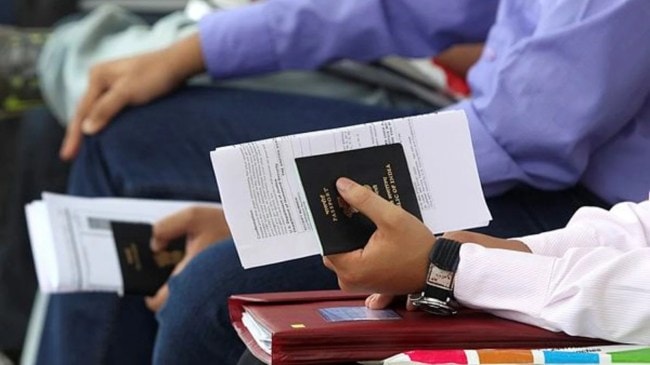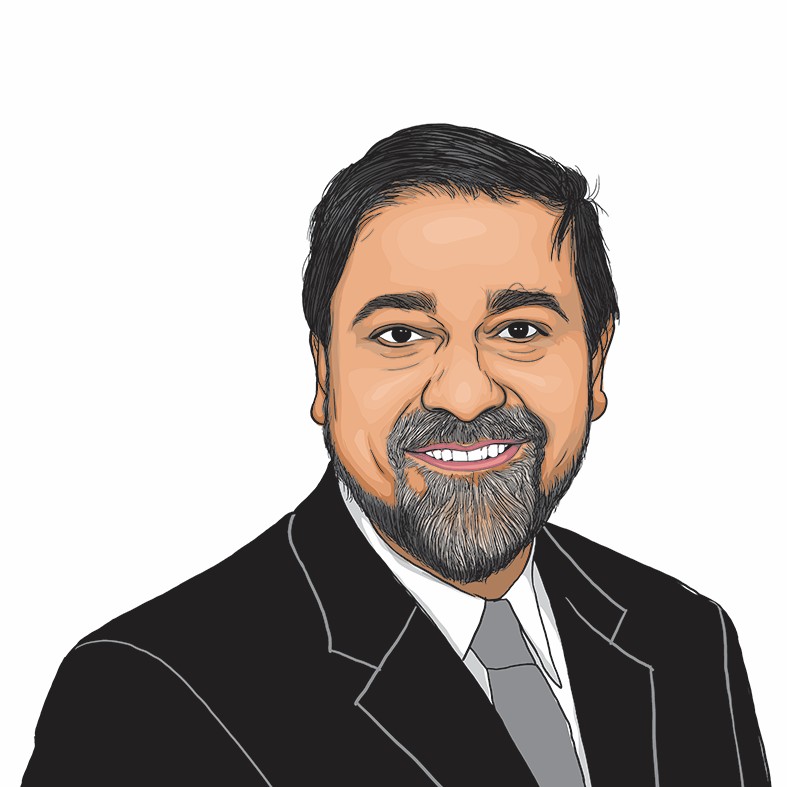Opinion Don’t blame Indian-Americans for India’s diplomatic failures
The problem is that India has never learned to tell its own story, whereas Pakistan knows how to frame grievances, mobilise its diaspora and cultivate allies in Washington and London.
 The real question is: Why has India never invested in public diplomacy that could harness this energy?
The real question is: Why has India never invested in public diplomacy that could harness this energy? Shashi Tharoor is a dear friend. I have admired his wit, eloquence, and service to India for years. He is one of the most brilliant essayists we have, and one of the few who can write about foreign policy in a language that ordinary people actually enjoy reading. But friendship does not mean I let him get away with misplacing blame. His recent column, “Can diaspora please stand up?” (IE, October 2), shifts responsibility for India’s diplomatic failures onto Indian-Americans. That, I cannot let pass.
The problem is not that the Indian-American diaspora has been silent. The problem is that India has been.
Indian-Americans are hardly voiceless. We are professors, CEOs, scientists, technologists, lawmakers, entrepreneurs, doctors, and even the former vice president of the United States. We have been writing, lobbying, testifying, and advocating for decades. Many of us have fought loudly for immigration reform, for stronger US-India ties, for recognition of India’s rise in technology and business. I myself have written books and op-eds about the injustices of the H-1B system and the reverse brain drain. To suggest we have not stood up is unfair.
What Tharoor overlooks is that India has never learned to tell its own story. For decades, successive governments have been stuck in the hesitant, colonial-era mode of the British Raj — filling forms, issuing denials, reading long statements. When faced with a challenge, India waits it out rather than seizing the narrative. Silence in diplomacy is not golden; it is fatal.
Contrast this with Pakistan. Despite being economically weak and politically unstable, it knows how to frame grievances, mobilise its diaspora, and cultivate allies in Washington and London. It punches far above its weight because it plays the game of perception. India, by contrast, still thinks it can rely on civilisational pride and hope the facts speak for themselves, but they rarely do.
Look at how India is handling US President Donald Trump’s insanity. The administration slapped tariffs on Indian goods, imposed punitive H-1B fees, and treated Indian tech workers as expendable. Did New Delhi mount an aggressive PR offensive, lobby effectively in Washington, or mobilise its diaspora to speak in unison? Nope. It relied on stadium rallies and warm words about friendship — as if optics were a substitute for strategy.
Meanwhile, Indian-Americans were caught in a bind. We are expected to be patriotic Americans, grateful immigrants, and unpaid lobbyists for India. If we speak too loudly, we risk being accused of divided allegiance. If we stay quiet, we are accused of indifference. It is a no-win position — and one that India has done little to resolve.
I know this firsthand. Years ago, when I testified in both the Senate and House about the flaws of the US visa system, I wasn’t just speaking for Indian workers, I was warning that America was pushing away the very engineers and entrepreneurs who built Silicon Valley. I wrote The Immigrant Exodus, published articles, and went on television. Others in our community did the same. We were not whispering in the shadows; we were shouting from the rooftops.
But the US political system does not listen to immigrants alone. It listens to allies who show up with coordinated campaigns and a clear message. That is where India has consistently failed. The diaspora can amplify, but it cannot replace statecraft.
Indian-Americans have indeed built influence — sometimes quiet, sometimes loud. We have reshaped industries, bridged cultures, and made the case for India in boardrooms and classrooms. But don’t confuse a lack of marches with inaction. We are not Cuban-Americans, united by a single grievance against Havana. We are diverse in religion, region, and politics. That diversity is our strength, but it also means we cannot be herded into acting as one.
The real question is: Why has India never invested in public diplomacy that could harness this energy? Why does it still treat the diaspora as cheerleaders to fill stadiums, rather than as strategic partners? Why does it rely on nostalgia — Bollywood, biryani, bhangra — instead of professional lobbying and narrative control?
I say this not as an armchair critic, but as someone who has put his own time and money on the line for India. After losing my wife to cancer, I devoted myself to building Vionix Biosciences, a platform to transform medical diagnostics and water safety worldwide. And I believed India should lead this charge. I bet on India’s deep-tech abilities before India believed in itself. I chose to focus on curing cancer for the poor in India before selling to the wealthy in the West. I chose to build water intelligence in Bengaluru’s slums before pitching Silicon Valley’s boardrooms.
Who supported me? Indian-Americans — not the Indian elite. Friends in the diaspora wrote the first cheques, opened doors, and shared the vision. But in Bengaluru, I could not convince a single billionaire to back a project to clean their own community’s water. They play it safe, donate to fashionable causes, and complain about government inefficiency. They celebrate India’s rise but will not take risks to make it real.
That is the irony. The very people Tharoor accuses of silence are the ones stepping up. It is not the diaspora that has failed India — it is India’s own privileged class that has failed its people.
This is not cause for despair but for action. The Indian-American community has shown what is possible when bold ideas are backed with courage. India must now learn to do the same. Instead of waiting for the world to recognise it, India must recognise itself. Instead of expecting the diaspora to fight its battles, India must start fighting its own — and let the diaspora amplify, not substitute.
Shashi, my friend, I say this with respect. In this case, you are pointing the finger in the wrong direction. The diaspora has stood up; it is time for India to stop sitting down.
The writer is CEO, Vionix Biosciences; former distinguished fellow at Harvard Law School, Carnegie Mellon School of Engineering, and Emory University; fellow at Stanford Law and UC-Berkeley; and adjunct professor at Duke University and Carnegie Mellon University






